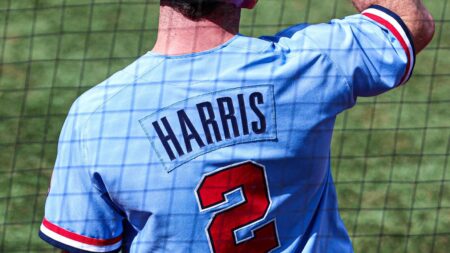Headlines
John Hailman Speaks at Overby Center
John Hailman, an Ole Miss Law professor and former prosecuting attorney, recently published a Mississippi bestseller, From Midnight to Guntown, about his experiences as a prosecuting attorney. Tuesday night he sat down for a dialogue with Charles Overby to present his new book and the experiences he wrote about.
“It’s cruel to say, but (prosecuting) is like a sport,” Hailman said of the court system.
The strange characters and people he met through the cases and the juries had been one of his favorite parts. He spoke of his fascination with bank robbers, and although their stories often turned out the same, the robbers themselves were all very unique.
One could easily see he was recalling stories of time spent with old friends, rather than criminals he was paid to try in court. One woman he prosecuted had covered her face in lipstick rather than using a mask because all the masks she tried were too uncomfortable.
Another robber that he recalled, Paddy Mitchell, is who he considered the best bank robber of the twentieth century. Mitchell was rarely captured by authorities and considered all other bank robbers amateurs.
Hailman explained that in blue-collar crime, the main question at hand was who committed the alleged crime. Whereas, white-collar crime mostly focused on whether or not what someone did was illegal. He explained that as serious as the profession was, he always had fun doing it.
“The pressure of trying cases really was no pressure at all—it was fun,” Hailman said.
He eventually started working more on white-collar crimes. The criminals were more often honest people who wanted more of the goods of this world. They just got greedy, rather than people who stole because they needed money.
A couple of examples he mentioned were men who wanted a new car for his wife or wanted his daughter to pledge Chi O. When criminals had started with decent reputations, it made them harder to convict. Bankers and stock brokers thrived on subtlety, their game was getting up to the line and not crossing it. Coupled with their stoic natures, made them a challenge.
He also talked highly of picking juries for cases, particularly because he was able to learn about the jurors. Court cases are more human and never have precise proof, he always avoided nitpicky engineers in his grand juries. He also explained that he preferred jury service to voting because of how difficult and interesting it is.
“I never played golf because I never needed to build business—it always came to us,” Hailman joked.
Prosecuting was his sport, and cracking each case was a challenge. Hailman claims he never got too tied up in winning and losing. But the camaraderie of working as a team, helping the victims, and getting to know the people involved all contributed to his love for his job.
–Elizabeth Ervin, freshman journalism major, Meek School of Journalism and New Media
–Email Elizabeth at elervin@go.olemiss.edu

















